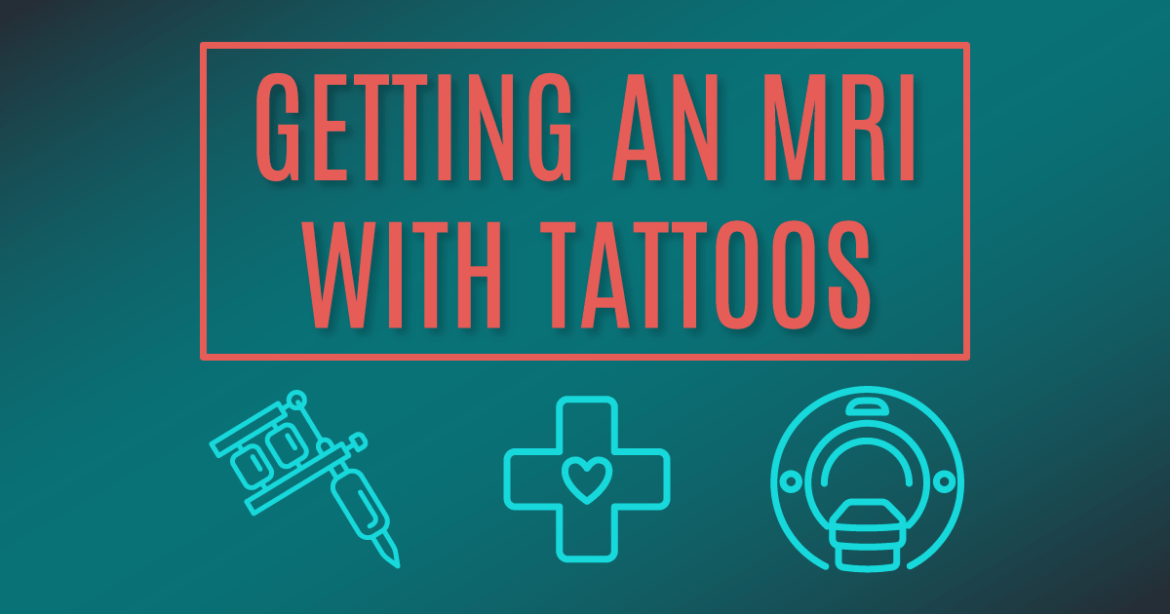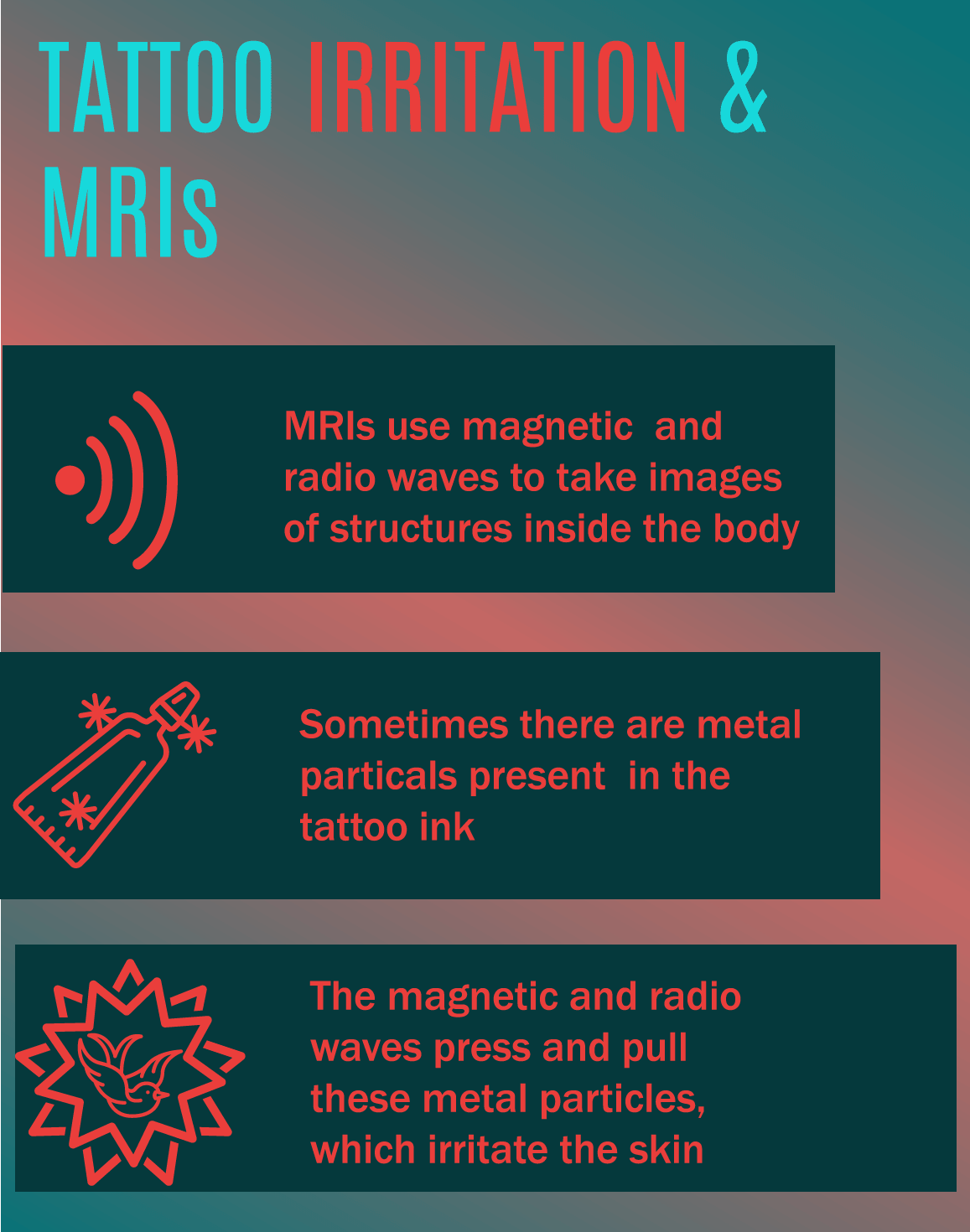A snake, a pattern, flowers, or some text–for some, tattoos have deep personal meaning, for others, they’re just for fun. Whatever they look like, tattoos are becoming more and more popular in the US today. As more people get tattoos, a lesser-known side effect related to MRIs has come to light.
In very rare cases, people with tattoos experience discomfort and even can develop 1st or 2nd degree burns on their tattoos when getting an MRI. In this article, we cover how MRIs interact with tattoos, why individuals with a tattoo could develop burns when undergoing an MRI, and ways to minimize your future risk if you have tattoos or are considering getting tattooed.
Do MRIs Cause Tattoo Irritation?
Getting an MRI is normally an easy and harmless experience. With state-of-the-art technology and professional medical specialists guiding every step of the procedure, there are rarely complications.
Unfortunately, patients with tattoos may not have a totally painless experience when getting an MRI. In extremely rare cases, patients with tattoos can have adverse reactions when undergoing MRIs including burning, irritation, or general discomfort on the tattoo.
People with tattoos experience adverse side effects less than 1% of the time. In one particular study, only one participant out of 330 complained of any effects of pulling, burning, or irritation around the site of their tattoo, with the irritation ultimately not requiring medical attention and disappearing after 24 hours.
However, the more tattoos you have, the more likely you could experience discomfort because of the increased amount of ink on your skin. So the next question is, how does tattoo ink and MRIs interact?
Tattoo Ink and MRIs
MRI machines use powerful magnets and radio waves to create detailed pictures of the soft tissues of the body, such as joints and organs. Tattoos sometimes have metal particles( like iron) in the ink, which can interact with the magnetic and radio waves of an MRI, and become irritated. They may sometimes even conduct an electric current, which heats up the tattoo and causes anything from a “pulling” sensation or discomfort to a first or second degree burn.
While most people with tattoos won’t ever experience irritation because of an MRI, tattoos can also affect the quality of an MRI scan. Even if the tattoo does not become irritated, there still may be metal present in the ink. When being scanned, this metal causes the tattoo to show up as a black spot on the image made by the MRI machine, making it difficult, if not impossible, for the scan to show what is under that part of the skin covered by a tattoo.
Getting Scanned Safely
There are a few things you can do to minimize your risk for an unpleasant MRI experience if you have a tattoo or are considering getting tattooed.
First, if you are considering getting a tattoo, ask your tattoo artist about the type of ink they use. The FDA does not regulate tattoo ink, so getting your tattoo at a reputable tattoo shop that uses good ink will go a long way in preventing any complications down the road–if you’re interested in learning more, just ask your artist about the type of ink they use to learn more.
Second, if you don’t have tattoos and don’t want to be in the less than 1% that has these side effects, the choice is easy–don’t get a tattoo. If you still want a tattoo, but want to lessen your chance of a reaction, get one that is smaller.
Finally, if you have tattoos, your technologist and physician will work with you to lessen any possibility of side effects if you get an MRI. During an MRI procedure, you will work with a radiologic technologist who will walk you through scan from beginning to end. If you feel any discomfort, just let them know and they will stop the scan and assess the best and most comfortable way to finish the scan.
While MRIs can cause tattoo irritation, this happens only in rare cases. If you are getting an MRI, let your doctor know if you have any tattoos so they can figure out the best way to image that area and ensure you have a good experience.
If you need an MRI, contact the UVA Radiology and Medical Imaging department at (434) 982-6600 to schedule a consultation or ask about an upcoming MRI. If you want to learn more about MRIs, take a look at our articles on reducing MRI claustrophobia and MRI for kids.




